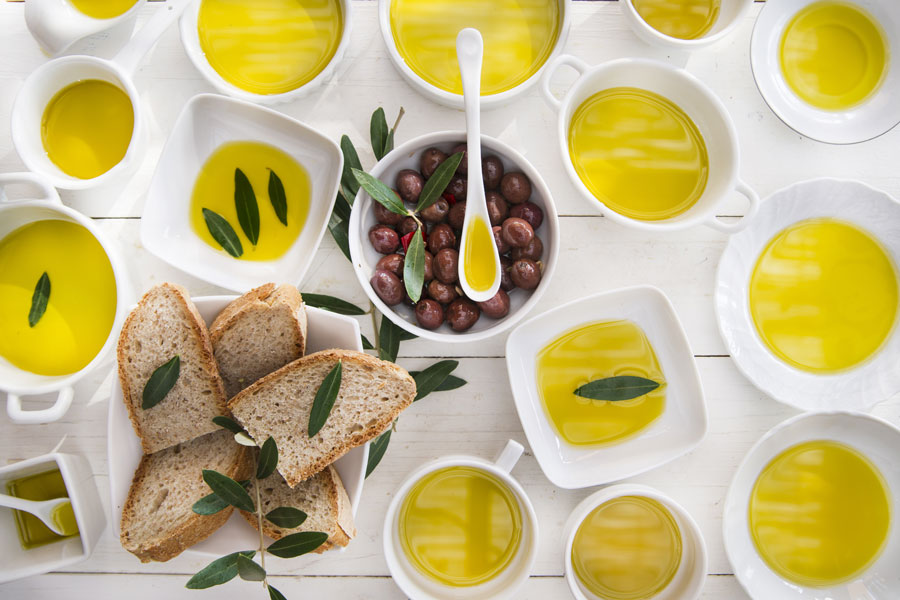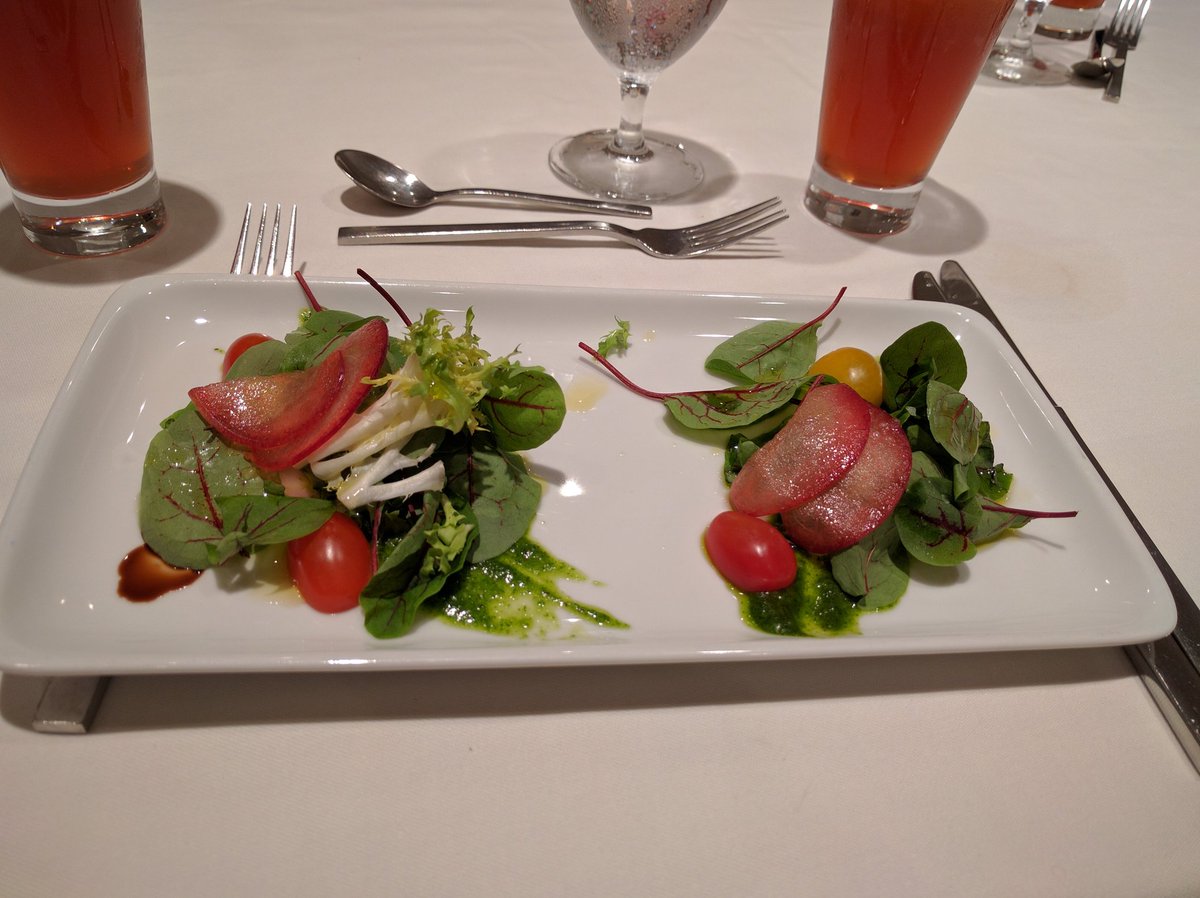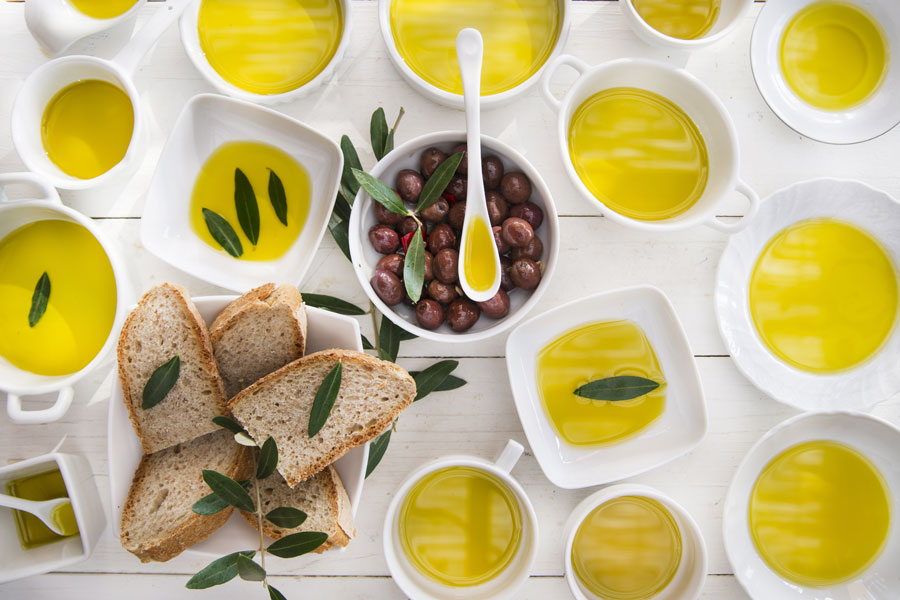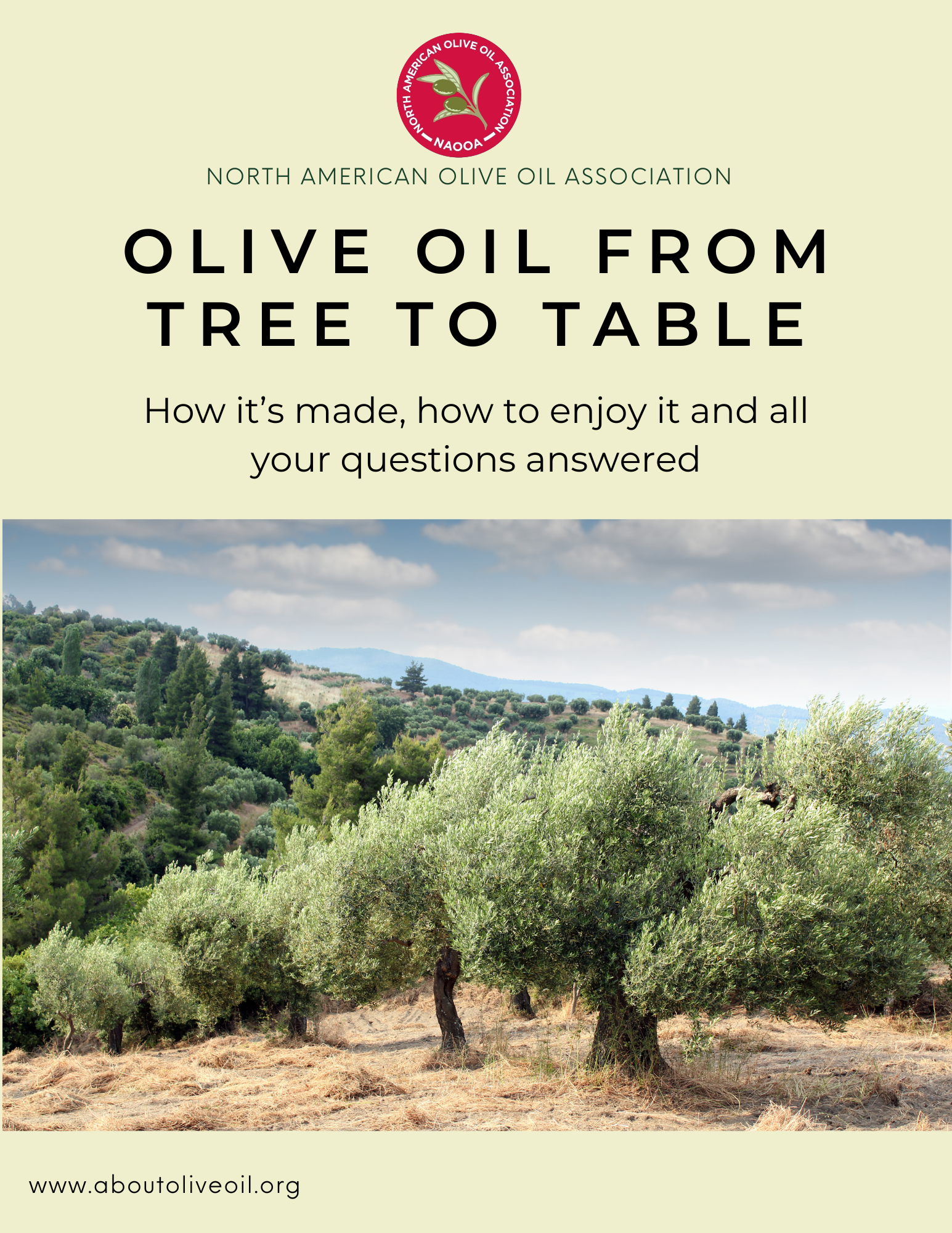
Extra virgin olive oils are like wine, offering a range of flavors that compliment the food you are serving. Just like in a wine shop, you might be overwhelmed by the choices of extra virgin olive oils in your local shop. How do you choose?
A fun and tasty way to learn more about olive oils is to host an olive oil tasting party. You can purchase multiple extra virgin olive oils for your friends to taste, or ask your guests to bring a bottle each. There are hundreds of varietals and many olive oil producing regions around the world. You may want to compare varietals or countries. Just make sure that each bottle is freshly opened for the tasting party to ensure maximum flavor and aroma.
For the tasting party, you will needed glasses or cups for each olive oil sample. Professional tasters use blue glasses so they are not influenced by the color of the oil. At home, you can use wine glasses, small drinking glasses or disposable cups. We also recommend that each guest have a pen and paper to take notes.
Tasting olive oil is similar to tasting wine. To start off, analyze the aroma. Pour a couple of tablespoons of olive oil into a cup, cover it with your hand and give it a swirl. Put your hand at the bottom of the cup to gently warm the oil. Put your nose into the cup and take a deep whiff of the oil and make a note of the aromas. Common aromas include herbs, tomato, tropical fruits, citrus, artichokes, nuts, apple, banana, and green tea.
Next, you will taste the oil. Sip a small amount of oil and slurp short bursts of air into your mouth at the same time. You will be mixing air into the oil in your mouth to heighten the flavor and hitting all parts of your mouth. Make a note of the flavors that you detect as well as the pungency and bitterness in the mouth. Then swallow.
You will notice a intense sensation in your throat that might make you want to cough. This is a good thing! Oleocanthal, a polyphenol and powerful anti-oxidant is responsible for the burning, peppery sensation and the cough. Make a note of the flavors and intensity in your throat. Some olive oils are fruitier, other are more bitter and pungent. Decide if the olive oil is mild/delicate, medium or robust. Write down your notes on flavor and intensity and compare with the aromas you detected with your nose.
Discuss your observations with your friends. You might notice that some people notice things that are very different from your own observations.
Professionals use green apple slices and water to clear their palate between tastes of oil and we recommend you do the same.
When you are done tasting, you can extend the experience by trying the oils with food. Some ideas: bruschetta, soup, cheese, bread, pasta, potatoes, meats and vegetables. Don't forget to also try drizzling oil on sweet things like chocolate, vanilla ice cream and fruit. We recommend trying the same exact food with a mild oil and then again with a robust oil. Note how the oils transform the flavor of the food and how some oils work better with some dishes than others. Make notes of which oils harmonize best with your favorite dishes. You will be amazed at the difference between the oils!

(Serve the same dish with two different extra virgin olive oils and compare the flavors).





